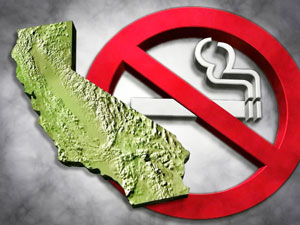FCNNEWSSOURCE

LOS ANGELES – Black leaders in California called on the tobacco industry to stop targeting their community with the promotion of menthol cigarettes and deceptive advertising. Menthol cigarettes are not more toxic than regular cigarettes, but the minty flavor and cooling sensation makes them more enticing and easier to smoke, paving the road to nicotine addiction. Seventy percent of Black smokers prefer to smoke menthol cigarettes, compared to 30 percent of White smokers.
“We’re here today to say enough is enough,” said Sharon Eubanks, the former government prosecutor who led the landmark 2005 lawsuit against tobacco companies. “The tobacco industry has been targeting the African American community for decades with deceptive ads and pushing menthol cigarettes that have an anesthetic quality. These cigarettes are harder to quit and make it easier for youth to take up smoking.”
Convening in Leimert Park, a historic gathering place for Los Angeles’ Black community, tobacco control activists showcased a selection of historical ads created by the tobacco industry to entice Blacks to smoke and highlighted data about disastrous health effects attributable to tobacco use.
Leading the effort were Ms. Eubanks as well as Rev. Anthony Evans, executive director of the Washington, D.C.-based National Black Church Initiative.
The call to stop the tobacco industry’s targeting of Black Americans comes at a time when Congress is considering legislation to give the FDA authority to regulate cigarettes. This legislation would prohibit tobacco companies from adding flavorings like cherry and peach to cigarettes, but contains a specific exemption for menthol.
“The U.S. Congress wants to ban adding candy and fruit flavors to cigarettes because it makes them more attractive to kids,” said Ms. Eubanks. “It is unacceptable that menthol is not included.”
According to the most recent California Tobacco Survey in 2005, Blacks in California have the highest overall smoking rate of any other group at 19.3 percent, compared to that of the general population at 13.9 percent. Black men and women both smoke at higher rates than other groups at 21.3 percent and 17.4 percent respectively, yet they attempt to quit more often and successfully quit at lower rates than any other group.
Advertising and promotion of tobacco products is prevalent in Black communities in California, advocates complained. Throughout the years, Blacks have been exposed to hundreds of tobacco ads, most of which are for menthol cigarettes, they said. Historically, the tobacco industry places proportionately more menthol cigarette ads in Black-oriented magazines than general population magazines, they charged.
“Smoking is not glamorous or sexy as these ads, so prevalent in our community, make it appear,” said Rev. Evans. “It’s lethal. And this targeting by the tobacco industry must stop.”
Tobacco use is the key contributor in the three major causes of death among Black Americans: heart disease, cancer and stroke. Lung cancer rates are especially high, with Black men 24 percent more likely than White men to have the disease.
Tobacco control activists and community members were in town to attend a Sept. 26 tobacco control conference, “A Community Under Siege: The State of Black California and Tobacco Use.” Participants at the all-day conference, sponsored by the California Department of Public Health, discussed and developed recommendations to deal with the immense toll tobacco use is having on California’s Black population.
Related links:
Researchers: Menthol used to attract young smokers (FCN, 07-30-2008)
Tobacco will kill 650 million smokers worldwide (FCN, 07-03-2008)
Anti-Tobacco campaigns escalating in the Black community (FCN, 04-16-2007)












